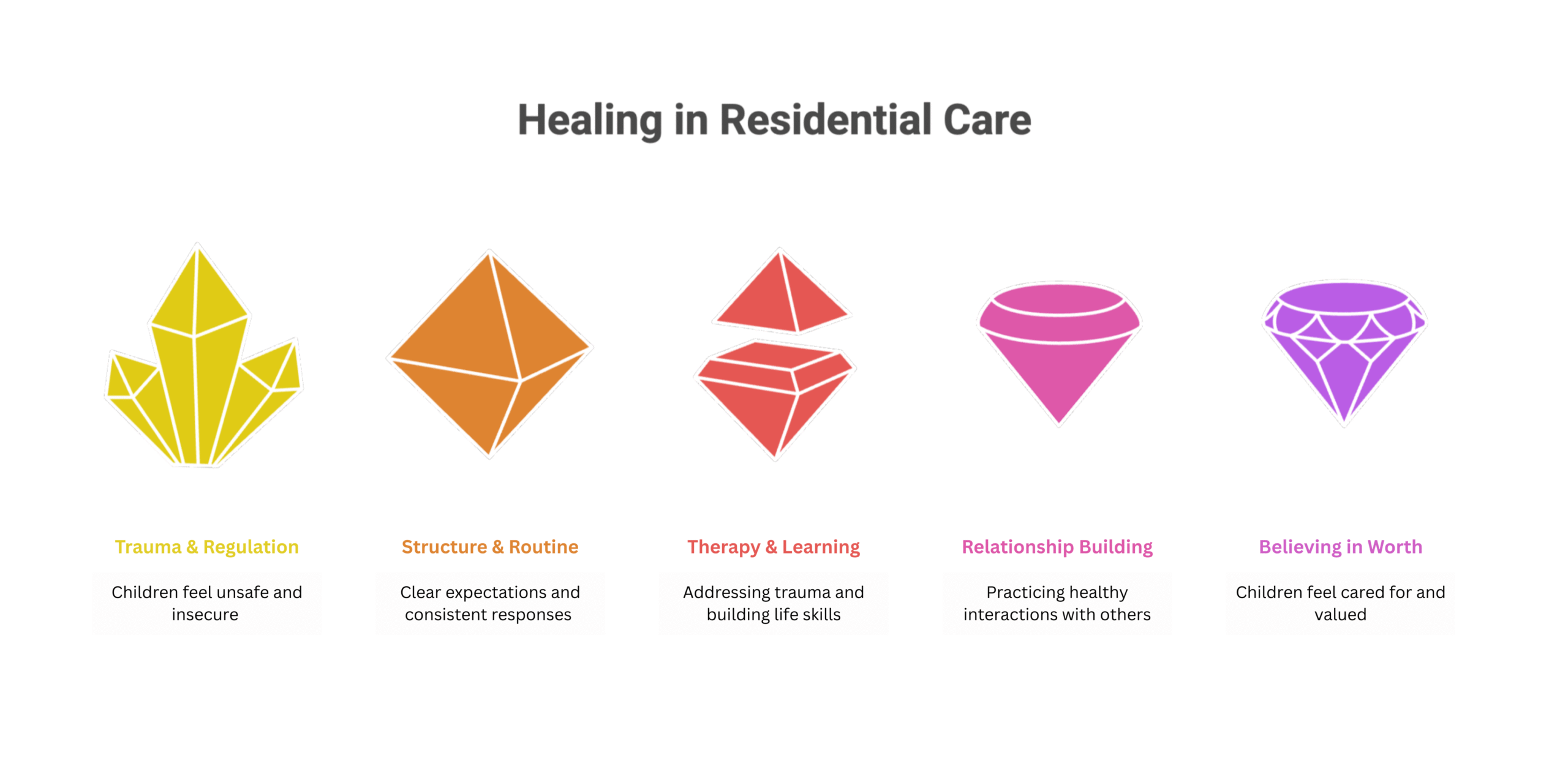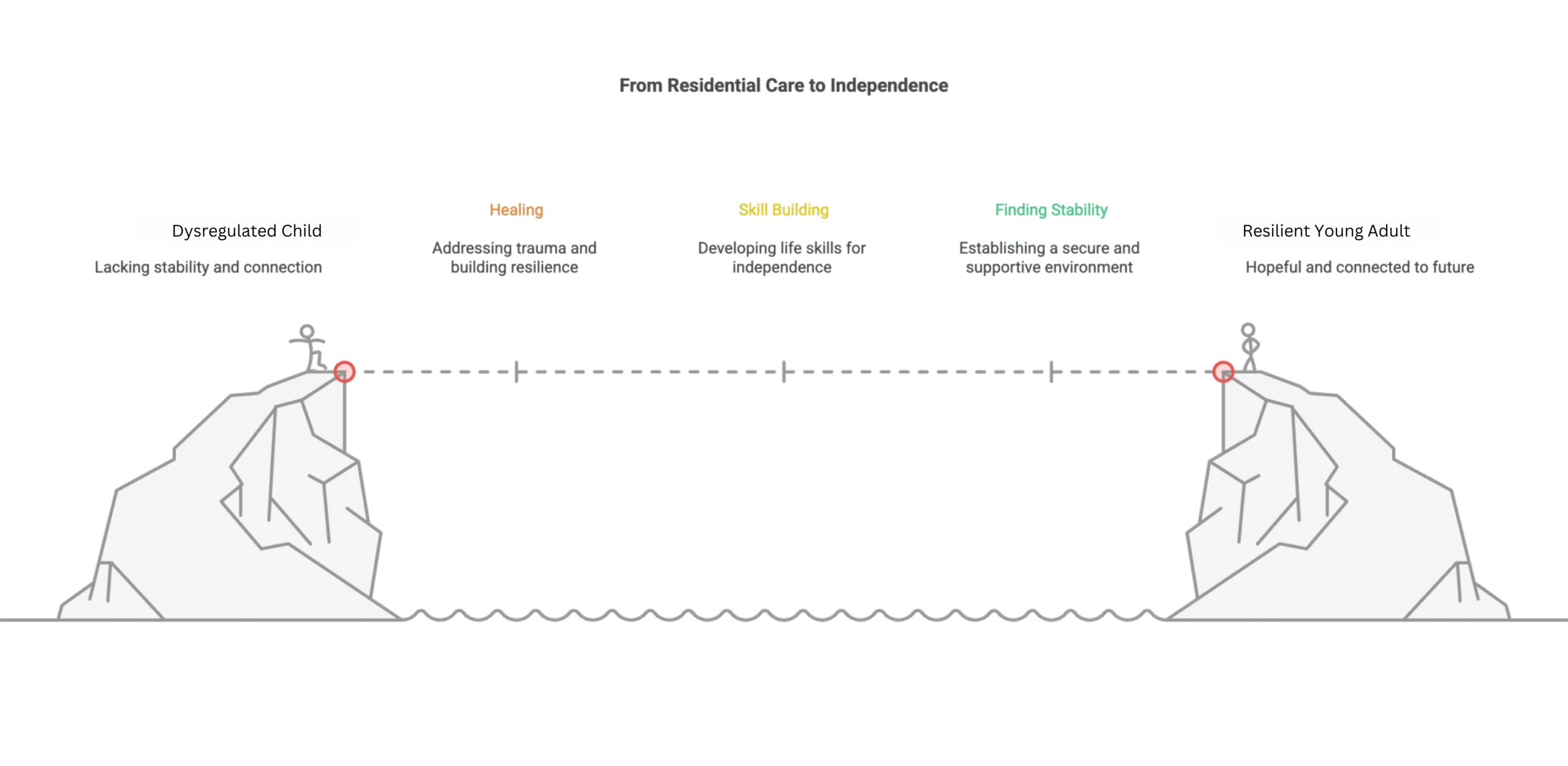At DCC Industry Group, we know that sometimes children and young people need more than what any single family can provide. When trauma runs deep, when behaviours are complex, or when safety requires round-the-clock support, residential care steps in. It’s not about giving up or failing. It’s about recognising when a child needs intensive, specialised care to heal and find their way forward.
Residential care isn’t a place kids get sent to. It’s a place where they’re held safe while they work through some of life’s toughest challenges. Our residential services provide 24/7 support with trained staff who understand trauma, who know that behind every challenging behaviour is a child trying to make sense of their world.

When Residential Care Makes Sense
Sometimes a child’s needs are bigger than what foster or kinship care can safely manage. Maybe they’re struggling with severe trauma responses, or their behaviours put themselves or others at risk. Maybe they need intensive therapeutic support that requires specialised staff and structured environments. This isn’t about anyone not being good enough. It’s about matching the right level of care to what a child needs right now.
Our residential care workers aren’t just supervisors. They’re trained in trauma-informed care, de-escalation, and building relationships with kids who’ve learned that adults can’t always be trusted. They understand that healing takes time, that progress isn’t always linear, and that every small step forward matters.
What Happens in Residential Care
In our residential settings, structure and routine create safety for children whose worlds have felt unpredictable. There are clear expectations, consistent responses, and plenty of opportunities to practice new ways of being in relationship with others. Kids go to school, participate in therapy, learn life skills, and slowly start to believe that they’re worth caring about.
We work hard to keep children connected to their families and communities when it’s safe to do so. That might mean regular visits, phone calls, or maintaining cultural practices that keep them grounded in who they are. For Aboriginal and Torres Strait Islander children, this connection to culture and country isn’t just nice to have, it’s essential for healing and identity.

The Path Forward
Residential care is never meant to be forever. From day one, we’re working toward what comes next. For some kids, that means healing enough to return to family or move into foster or kinship care. For older young people, it might mean building the skills they need to live independently. Every child’s journey is different, but the goal is always the same: helping them find stability, connection, and hope for their future.
We know that being in residential care can feel scary for families. There’s often shame, guilt, and worry about what it means. But we’ve seen children transform in these settings. We’ve watched kids who couldn’t regulate their emotions learn to ask for help. We’ve seen young people who’d given up on themselves discover their own strength and resilience.
Walking Alongside Families
When a child is in residential care, we don’t forget about their family. We work with parents, siblings, and extended family to understand what led to this point and what needs to happen for things to change. Sometimes that means connecting families with services, sometimes it means working through trauma that’s been passed down through generations.
We believe in the power of family, even when families are struggling. Our job isn’t to replace family connections but to strengthen them where possible, to help families heal alongside their children, and to create the conditions where safe reunification might be possible down the track.
At DCC, residential care is about more than keeping kids safe, though safety always comes first. It’s about creating space for healing, building skills for the future, and helping children remember that they’re worthy of love and belonging. Because every child deserves to feel safe, valued, and strong in who they are, no matter how tough their journey has been.
